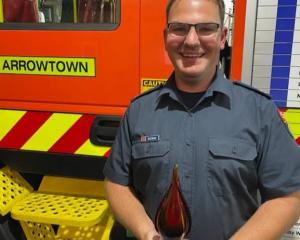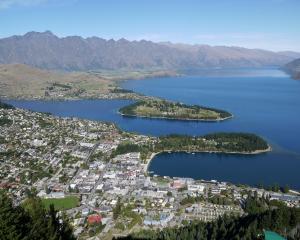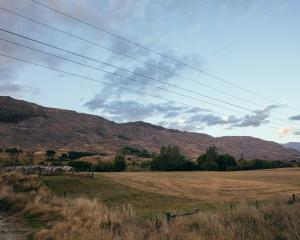Informal airports came to the fore again yesterday during resumed hearings on the Queenstown Lakes District Council's proposed district plan.
Speaking to the hearings panel yesterday afternoon, pilot instructor and flight examiner Carlton Campbell recommended "grandfathered existing use rights'' remained in respect of recreational and training use of existing airstrips.
At present, flights from "informal airports'' are unrestricted. However, the council is proposing rules aimed at reducing "noise nuisance'' to neighbours, with a proposed 500m setback from building platform boundaries and limits to the number of flights permitted per week.
Mr Campbell, who has been flying for more than 46 years, said limiting the movements of fixed-wing aircraft did not assist with pilot competency and, subsequently, safety.
"Often neglected in occasions such as this district plan process is the fact that pilots don't just appear qualified out of the blue with the skills, competence and currency to operate on airstrips.
"The training required is extensive and ongoing.
"It requires, among other things, training experience in various seasonal weather, loading and different aircraft types.''
Training, as with any airline operating in Queenstown, included initial training on any particular strip, transition training to experience different weather and surface conditions and more sophisticated aircraft and then recurrent training, all of which were legal requirements.
The availability and accessibility of airstrips was, therefore, essential to the "safety and the life-cycle of aviation at all levels''.
Restricting the number of movements a day was not conducive to safety because competence would "very rarely be achieved'' in two movements.
Mr Campbell said while it was "easy'' to acknowledge the importance of an airstrip for topdressing purposes and pest control, for some remote landholders access for various reasons, for example an emergency, was "critical''.
Furthermore, natural disasters, such as an earthquake, meant airstrips played a significant part in the rescue and recovery process.
However, Totally Tourism Ltd and Skyline Enterprises Ltd agreed with the council's approach.
Presenting on behalf of both companies, resource management planning consultant Sean Dent, of Southern Planning Group, said the proposed provisions a ``significant improvement on the status quo''.
"I understand a number of submitters believe the proposed limitations on flights for private rural zone land to be an impediment to their current use.
"With respect, if these submitters can prove existing use rights, the proposed provisions have no effect on them.
"Alternatively, if no existing use rights apply, then the provisions are again an improvement on the status quo.''
Mr Dent said he agreed with limiting the daily number of flights and, in response to questions from the panel, believed "banking'' flights would ultimately result in non-compliance with respect to noise regulations.
"A lot of the annoyance with the aircraft noise comes from an anxiety of not knowing how many flights are going to come per day.
"I believe from a large proportion of the community there is a novelty factor in watching small aircraft operations ... but there's a particularly vocal faction of the community that would have, I'd say, almost a zero tolerance as well.
"It really is a balancing act between those two parts of the community.''












